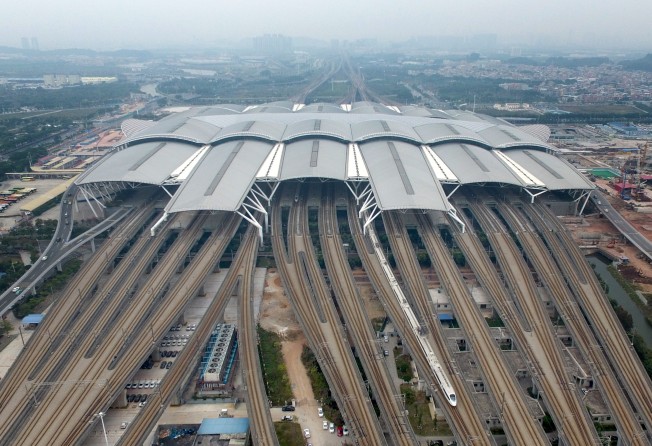China’s ban on entrusted loans to set to end a popular form of shadow financing
Morgan Stanley says the new rules will ultimately lead to better allocation of credit across the financial sector

China’s decision to ban the practice of entrusted loans could bring to an end a popular form of funding in the unruly shadow banking system, but was likely to result in a better allocation of credit overall, according to Morgan Stanley.
In a notice over the weekend, the China Banking Regulatory Commission banned banks and other institutions that can extend loans from arranging entrusted loans, whereby companies provided finance to each other with banks acting as intermediaries.
The CBRC said it saw “certain potential risk hazards” due to rapid growth in such lending and a lack of regulation. Entrusted loans often take the form of banks buying investment products from asset management plan providers, who in turn would lend the money to borrowers designated by the banks. There is some 13.9 trillion yuan (US$2.1 trillion) in entrusted loans in existence.
“Since the only channel for asset management plans to allocate funds to the end borrowers is via entrusted loans, the ban on using funds from the plans from brokers, fund management subsidiaries and private funds for entrusted loans will effectively put an end to the most popular structure for non-standardised credit assets,” Richard Xu, a China financial sector analyst with Morgan Stanley, wrote in a note.
Xu estimated that of the nearly 30 trillion yuan in non-standard credit extended by banks, 15 trillion to 20 trillion yuan ultimately reached borrowers via entrusted loans, About 70 per cent of that figure went to local government financing vehicles, which invest in infrastructure projects, and to property firms.
He predicted that the new rule could reduce the amount of non-standard credit by 80 to 90 per cent over time, and push most credit back to regular channels such as loans and bonds.
“The message is very clear-cut, you just have to give up the non-standard credit business,” Xu said in a separate briefing on Monday.
Asked if the ban could hit the property and infrastructure sectors, Xu said that compared with the over 200 trillion yuan size of the credit market, the size of the entrusted loan business was relatively easy to digest, and the likely outcome of weaker borrowers being squeezed out of the market would be a better credit allocation.